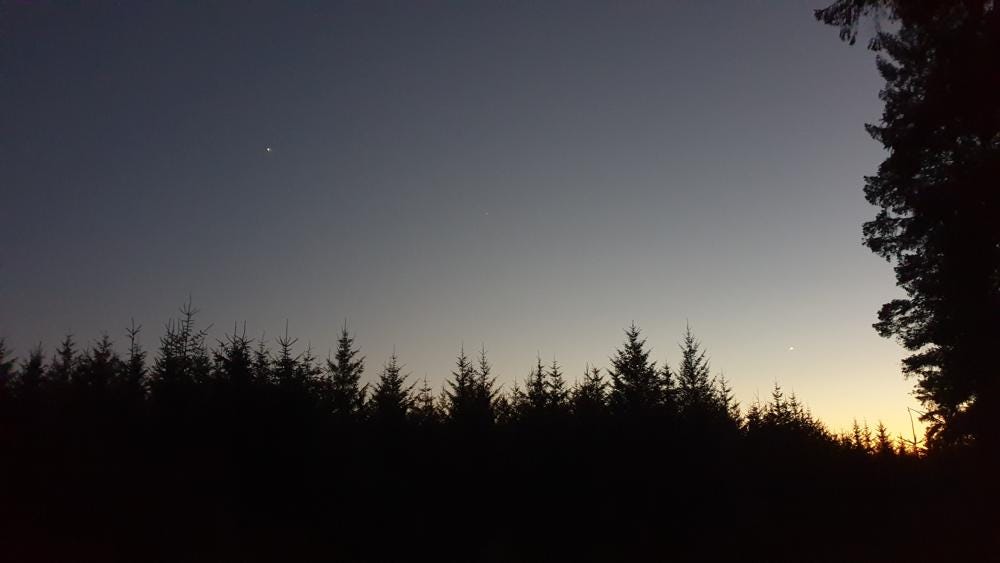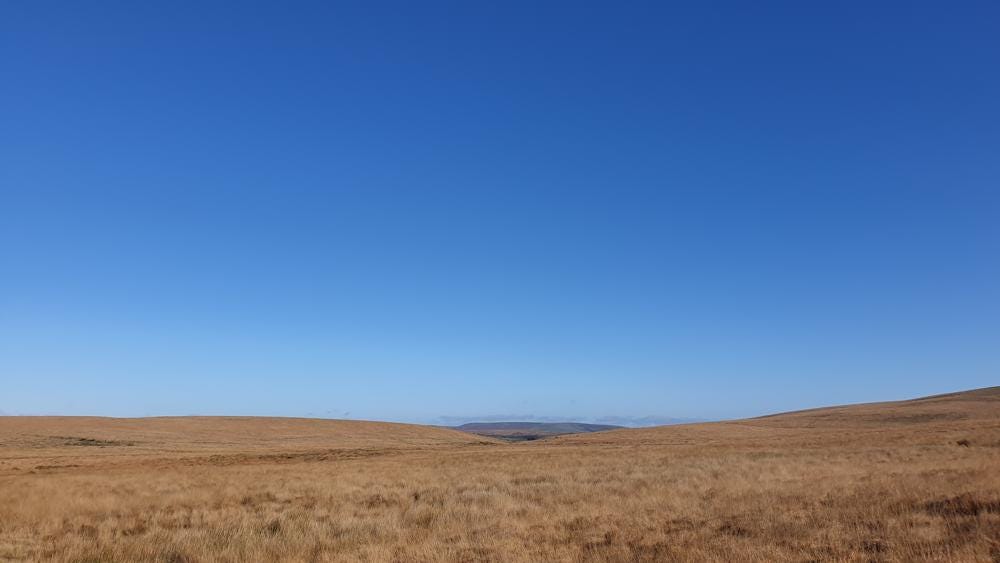Solitude and Fire
Because the stars are slowly parading through our night sky, Draco’s head will once again shine forth as our pole star in about 21,000AD. Assuming we make it that far as a species.
Happy Friday!
After today, there are only three more Fridays left in 2021.
I’d been hoping to write next week’s email from Paris, but that trip’s been cancelled due to a very special combination of coronavirus and railworkers’ strike.
What that cancellation means is that, for the second consecutive year, I will not have left these shores (except for the occasional ocean paddle).
In a funny way, I’m pleased that the increasingly complicated voyage abroad has been cancelled — and strangely proud that I will have found every single one of my 100 Days of Adventure (92 and counting…) at home in England and Wales.
I’m even more delighted that, last weekend, one of our Thighs of Steel cycle club crew declared that 100 Days of Adventure would be her resolution for 2022.
It’s been a tough challenge — and finding those final eight days will be tougher still over Christmas — but it’s kept me focussed on the memorable experiences that make me feel alive.
The solitude of stars
One of the consolations of winter is the growing role of the moon and stars in our lives. Last night, I watched the moon rising in a fine crescent over the sea, backing into the inky gap between Jupiter and Saturn.
Together with Venus, these are the easiest planets to spot at the moment because, at dusk, they form a nice easterly curve up from the horizon in the southwest.
As the night deepens, you’ll be able to pick up the constellations ever present in the northern night sky: the two Bears, Cassiopeia, Cepheus and Draco the serpent or dragon.
The first three are important to the nightwalker: the constellation of Little Bear holds the North Star and, when you know how to read them, both Cassiopeia and Big Bear point the way north.
Fascinatingly, the head star of Draco was the pole star for the ancient Egyptians, who constructed their pyramids so that the serpent’s head should be visible from the entrance passage.
Because the stars are slowly parading through our night sky, Draco’s head will once again shine forth as our pole star in about 21,000AD. Assuming we make it that far as a species.
In winter, we get the starry show of every child’s favourite pattern of stars, Orion the hunter, who draws his deadly bow in the east.
In fact, I’d go so far as to say that winter is the finest time to explore, not only the celestial firmament, but also terra firma.
The weather is nowhere near as bad as we fear and the darkness brings the twin balms of silence and solitude.
I hiked about 72km over four days while on Dartmoor and saw no more than eight other human beings the whole time — and only one group of four who were close enough to bid good day.
The only action that broke the peace were military manoeuvres: four helicopters ploughing furrows in the sky over my head for half an hour.
Hiking back up to the car park, following the North Star with Jupiter at my back and Orion by my side, I saw two headtorches bobbing in the distance. I passed an empty tent.
Fire!
Over the past few years, I’ve become a much more qualified arsonist.
Back in 2009, I remember footling around with a grate and some matches for about three hours, before a consummate fire-starter dragged a toothpick along an emery board for an instant conflagration.
Here are a few of the cheats I use today:
Cotton wool balls rubbed in Vaseline make for excellent lightweight, multi-purpose and fragrance-free starter fuel.
Stop using cigarette lighters and matches. Start using a torch. Not those kind of torches. These kind of torches, the ones with a steady, focussed blue flame that you might use to cremate a crème brulée. I’ve started fires with wet tinder using this. Definitely cheating.
Use an axe, penknife or saw to cut your fuel down to the right size for whatever stage of fire building you’re at. From bundles of finger-width twigs to hefts of wood block.
Make sure there is enough draft under your fuel. Oxygen is the forgotten force in the fire trinity of fuel, heat and air.
Don’t waste your breath on breathing life into your baby fire. Fan the flickers by using a piece of card, a scrap of bark, a book or even a t-shirt. You’ll get a much steadier draft and won’t pass out from smoke inhalation.
100 Days of Adventure
🟢🟢🟢🟢🟢🟢🟢🟢🟢🟢🟢🟢🟢🟢🟢🟢🟢🟢🟢🟢🟢🟢🟢🟢🟢
🟢🟢🟢🟢🟢🟢🟢🟢🟢🟢🟢🟢🟢🟢🟢🟢🟢🟢🟢🟢🟢🟢🟢🟢🟢
🟢🟢🟢🟢🟢🟢🟢🟢🟢🟢🟢🟢🟢🟢🟢🟢🟢🟢🟢🟢🟢🟢🟢🟢🟢
🟢🟢🟢🟢🟢🟢🟢🟢🟢🟢🟢🟢🟢🟢🟢🟢🟢⚪⚪⚪⚪⚪⚪⚪⚪
Only 8 more to go! Paris is cancelled, so if you have any ideas or invitations for adventures in the final 20 days of the year, please reply or comment. Thanks!
Good news!
One of the criticisms that I have of the discourse around climate chaos is that it is so easy to paralyse people with bad news.
That’s not to say that there is no bad news, only that terror will prevent people from the imperfect activism that changes the world.
That’s why I subscribe to Future Crunch: a regular newsletter utterly throttled with snippets of good news in the domains of environment, health and social progress from around the world.
Future Crunch shows me that millions and billions of people are working for a healthier planet — and makes me want to join them.
Here are three highlights from their latest batch of good news:
The WHO just released a new report detailing astonishing progress on measles. Between 2000 and 2020 the annual number of measles deaths fell by 94%, from 1,072,800 to 60,700, averting an estimated 31.7 million deaths. That’s a lot of lives saved! Might be worth remembering the next time someone complains about how awful the world is. WHO
Is it possible for a city to make 50% of transport walkable and cyclable? Vancouver hit that goal five years ahead of target in 2015, with half of all inner-city trips taken by walking, biking, or transit rather than car. Now Paris is on a mission to do something similar, with a new set of plans to make the city 100% cyclable over the next five years. Bloomberg
The Social Progress Index measures health, safety, education, technology, and human rights across 99.97% of the world’s population. In its latest report, it says that 147 nations recorded a better score than they did a decade ago, with just four countries (the US, Brazil, Syria and South Sudan) doing worse. “Social progress is advancing across the world, but it remains slow and uneven.”
You can subscribe to Future Crunch here.
Who knows what the next seven days will bring: we can only prepare to be unprepared.
Until next time, may all your nights be starry and all your days be crisp.
Big love,
dc:



